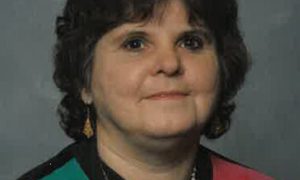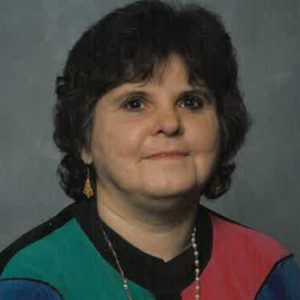
Celine Dias Pendexter, Compliance Officer and Mari Cooney, Apprentice Liaison for the Executive Office of Labor and Workforce Development. (Photo by Amy Porter)
WESTFIELD – Mari Cooney and Celine Dias Pendexter of the Executive Office of Labor and Workforce Development spoke to the Westfield Education 2 Business Alliance (WE2BA) during a meeting Wednesday at the Westfield Technical Academy, about the state’s expansion of its apprenticeship program into non-traditional businesses.
“Kids don’t all go to college. Not everyone goes from high school or vocational school into college,” said Cooney, who is the apprenticeship liaison for the state. She said the program, which parallels traditional journeyman apprenticeships, is addressing the skills gap by expanding into manufacturing, finance, health care, information technology and culinary fields.
Pendexter, the compliance officer for the program, works with employer sponsors. “The return on your investment is you’re building a skilled labor force for your company,” she said to the businesses in attendance. The program includes 150 hours of related instruction for apprentices who work full-time and “earn while they learn.” Businesses can apply for an expansion grant to pay for the related instructor of their choosing. Pre-apprenticeship is for high school and vocational schools, and full apprenticeship after high school. “There can be adult learners,” Pendexter said.
Cooney gave the example of a developing program for culinary apprentices with MGM in Springfield. She said she attended a meeting at the Tiger’s Den at Westfield Tech in April. “The kids that were serving took such pride. That’s how it started, the apprenticeship model for culinary,” Cooney said.
The pair is currently working with MGM and the Mass. Restaurant Association about taking on pre-apprentices for 2,000 hours of on-the-job training for a cook, for example, and 150 hours of coursework towards Related Technical Instruction. MGM must hire 35% of their employees from the local work force. Pendexter said available jobs are now being posted online at MGMSpringfield.com under Careers.
Pendexter said MGM has chosen Cambridge College as the “boot camp” for pre-apprenticeship training. Apprentices have to start with a living wage; as they develop competencies, wages increase. Pendexter said apprentices work full-time, receive regular evaluations, and can be let go.
“Essentially they could get a Registered Apprenticeship Certification (RA) which is being recognized throughout the state and throughout the country,” Pendexter said.The Division of Apprentice Standards is the licensing board. She said the give-back to the businesses is people who can do the job.
“The apprenticeship model is a career pathway,” Cooney said.
Another example given was an apprenticeship program for real estate appraisers in Springfield. Pendexter said they are working with Hartford Insurance Real Estate Appraisers, where there is a need for people to learn the field. Prior to starting the program, the business was requiring a B.A. and paying minimum wage. “They weren’t getting a lot of interest. They weren’t getting bites,” she said.
The last expansion grants, which come through career centers to expand the apprenticeship program to non-traditional occupations, expire in 2020. “Massachusetts is neck in neck with other states to get to the starting line,” Cooney said about the program.
Pendexter said the Westfield Police Department, Westfield G&E, Wal-Mart dispensing, the National guard maintenance shop and traditional trades are all currently participating in apprenticeships.








